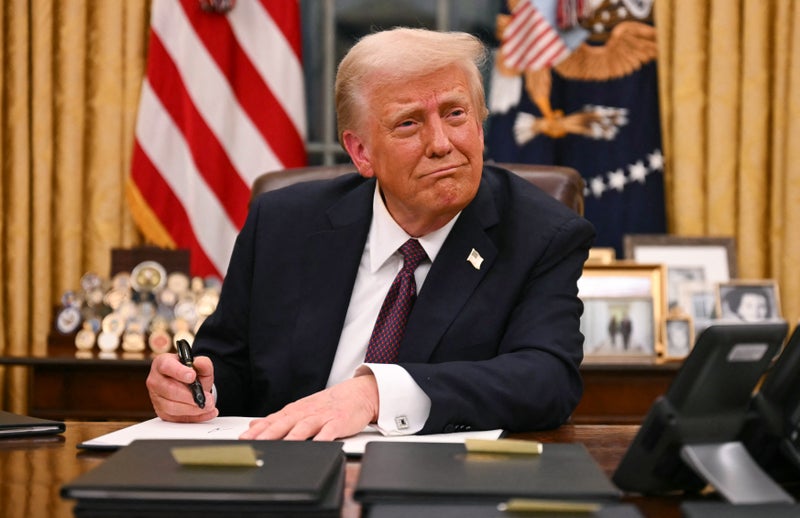The success of the far-right AfD is a ‘final warning’ to democratic parties, the winner of Germany’s election warns. Germany’s far-right AfD party have surged to an historic second place in national elections, securing an unprecedented influence in the country’s post-war political landscape.
![[AfD co-leaders Alice Weidel and Tino Chrupulla celebrate large gains in Sunday’s election]](https://static.independent.co.uk/2025/02/24/7/13/BESTPIX-TOPSHOT-GERMANY-POLITICS-VOTE-AFD-pwizg1yh.jpeg)
The AfD doubled their share from 2021 to win 20.8 per cent of the vote in Sunday’s election, in a surge described by victor Friedrich Merz – whose conservative bloc won with just 28.5 per cent – as a “final warning” to democratic parties. While Mr Merz and other democratic parties still insist they will not work with the AfD, the far-right party has won powerful international allies, such as billionaire X owner Elon Musk and US vice president JD Vance, whose backing may see their influence continue to grow.
![[AfD supporters waved German flags, including one adorned with an Iron Cross, at the final AfD campaign rally ahead of Thuringia state elections in August 2024]](https://static.independent.co.uk/2025/02/24/12/04/GettyImages-2169609785.jpg)
For now, their securing of 152 Bundestag seats hands the party a significant say in Germany’s future, as cracks begin to appear in the decades-old political firewall – the Brandmauer – aimed at excluding the far right from national politics. Who are the AfD?.
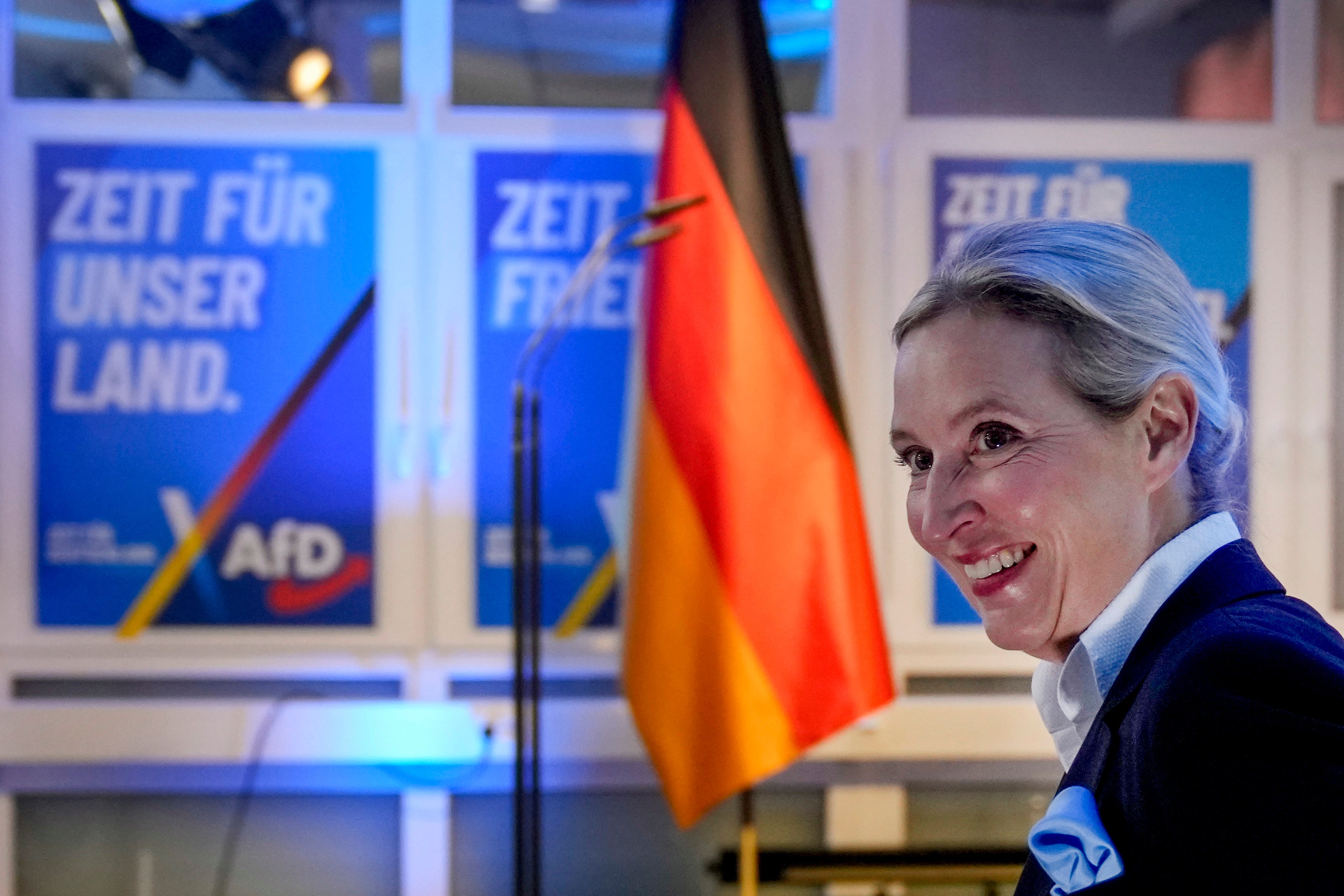
The party Alternative for Germany (AfD) was first set up in 2013, with its initial manifesto focusing solely on dissolving the Eurozone and opposing bailouts for countries struggling with the debt crisis. Founded by breakaway members of the conservative CDU party, it was initially dubbed a “party of professors” and veered away from harsh anti-migrant sentiment, crafting a reputational shield against accusations of extremism.
However, a series of leadership changes saw the party veer further into a hardline territory marked by its anti-migrant and anti-Islam stance, and rooted in nativism, following successes in regional elections. Since 2023, Germany’s domestic intelligence agency BfV has listed AfD as a suspected extremist organisation which requires surveillance, while classifying its youth wing Young Alternative as extremist.
What has AfD said about Islam and Nazism?. By the time of the 2017 election, which saw it enter the Bundestag for the first time with 12.6 per cent of the vote, AfD’s manifesto claimed that “Islam does not belong in Germany” and claimed that Germany’s Muslim population posed “a great danger to our state, our society and our system of values”.
At the same time, the party has shown sympathy for Germany’s Nazi past. Bjorn Hocke, AfD’s leader in the eastern state of Thuringia, has twice been fined by a court for using the banned slogan “Alles für Deutschland” (Everything for Germany) during public speeches, which was engraved on the daggers of Nazi SA Stormtroopers.
Mr Hocke, whose branch won in state elections last September – marking the first such far-right victory in post-war Germany – has also described Berlin’s Holocaust Memorial as “a monument of shame”, and has called for a “180-degree turn” in how Germany remembers its past.
Alexander Gauland, an AfD co-founder and former leader, has claimed that Germans should “have the right to be proud of the achievements of the German soldiers in two world wars”. The AfD’s rhetoric on immigration has also increasingly tested the boundaries of Germany’s post-war society.
Mass protests were triggered last January against the AfD amid calls from parliamentarians to ban the party, after a bombshell investigation exposed a secret meeting with far-right extremists in Potsdam to discuss the mass deportation of foreigners and “non-assimilated” Germans should the AfD win power.
But while AfD politicians initially denied the reports as a smear, the party began actively campaigning for “remigration” – the term reportedly used at the secret meeting – just weeks later. How has support for AfD grown?. “Remigration” has been central to the AfD’s recent election campaign, during which the party’s leader Alice Wiedel has been invited onto TV to take part in election debates for the first time, while their policies have increasingly been amplified on social media, including by X owner and increasingly vocal AfD backer Elon Musk.
Ms Wiedel, who is now the most followed political leader in Germany on Musk’s platform, has been widely described as presenting a palatable and unorthodox front for the AfD’s extreme views, given her background as a Goldman Sachs financial analyst and her sexual orientation as a lesbian. Despite this, AfD has become the loudest voice against LGBTQ+ rights in the Bundestag, even calling for the repeal same-sex marriage and adoption in 2017.
“Does that sound like Hitler to you? Come on!” Musk wrote of Ms Weidel’s background, as he endorsed the AfD in a December newspaper op-ed calling the party Germany’s “last spark of hope”. On the eve of the election, Der Spiegel’s Berlin office editor Marina Kormbaki noted that, “under Alice Weidel, the party has lost its horror for many voters, and Weidel's numerous TV appearances have accelerated the normalisation of the AfD”, which was set to benefit from a series of suspected terror attacks involving migrants.

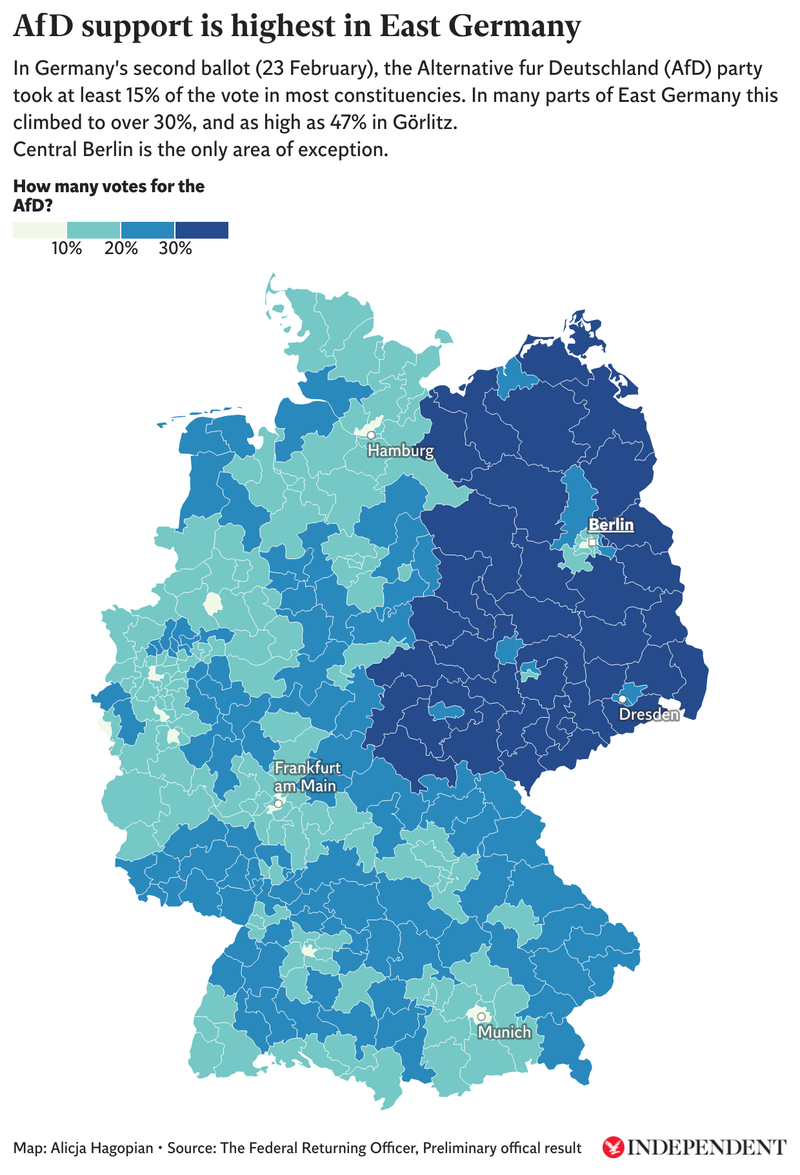
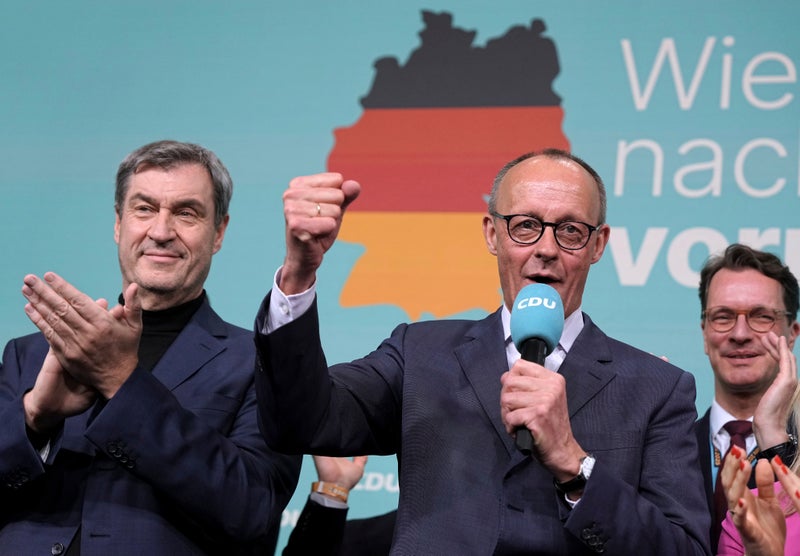









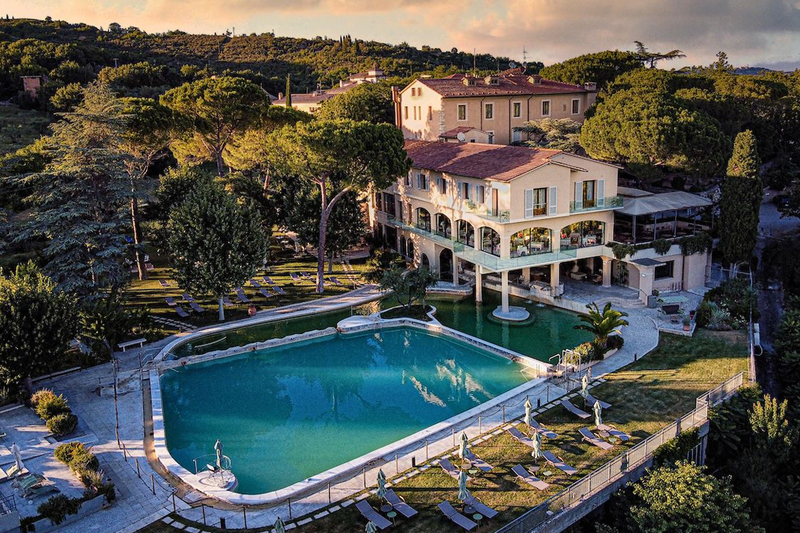
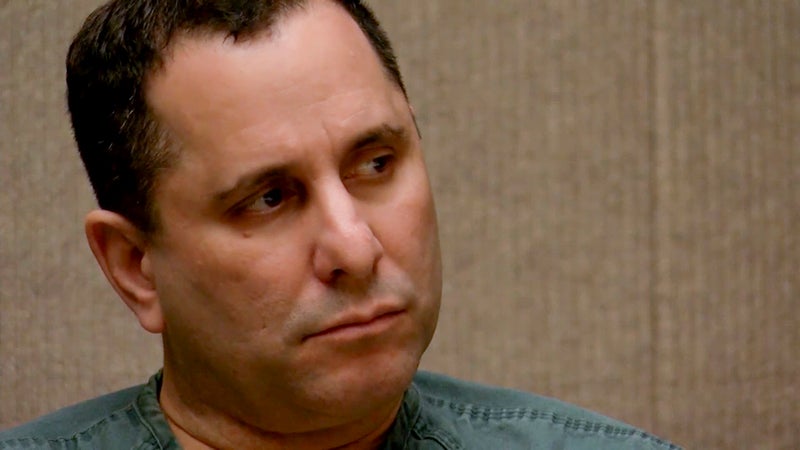




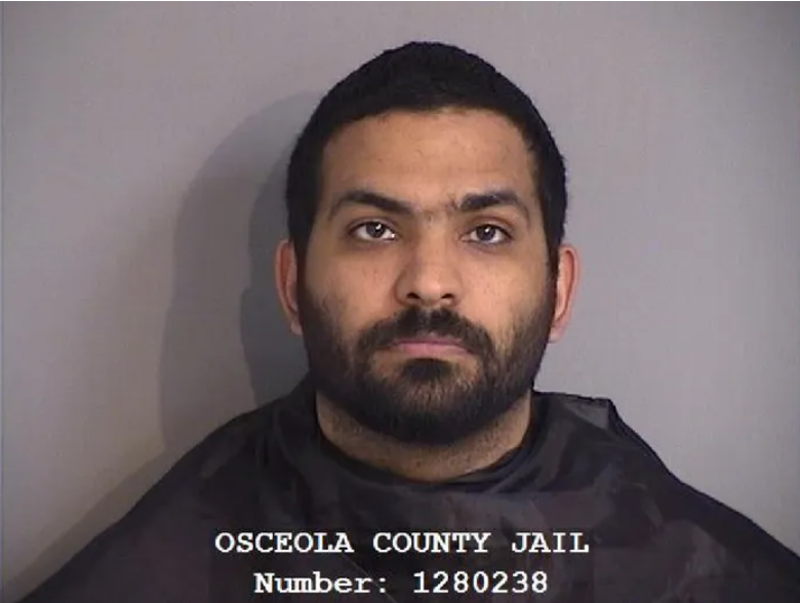




.jpeg?auto=webp&width=800)


